We are at an exciting point in our journey as a company. One of the best parts is that as we grow and build our presence across Asia, Africa and Latin America, we are able to offer our people amazing learning opportunities and roles across these geographies. Exploring ‘Your Canvas’, as we call it, is in fact one of the three pillars of our employer brand.
I am very pleased that Samantha Baloyi and Nomusa Mbongwa have authored this week’s message, where they share their learnings and experiences, living and working in India. Sam and Nomusa are both from South Africa and over the last couple years have made Mumbai and Godrej home. Sam, who was a part of our design team in South Africa, is now part of our global design team in Mumbai, while Nomusa is part of our global R&D team.
Please read on….
Let’s start by telling you about ourselves.
Nomusa: I have always been the colourful sheep of my family (the only one interested in chemistry; saw chemical reactions through colour and colours through science). I grew up in Johannesburg, South Africa and completed my double Major (Chemistry and BioChem) in Cape Town. My favourite phenomenon as a student was Raman Scattering (For non-Chemistry geeks, it is the inelastic scattering of a photon by molecules which are excited to higher energy levels. This was discovered C V Raman in liquids in 1928). I was keen to understand what it is all about, convinced that India bred great scientists. So, I decided to move to India. I believed it would be the ideal environment to “re-programme my subconscious”. India offered the element of “new relative” to what I was exposed to. The multicolored traditions and rituals interested me deeply and I wanted to explore for myself.
Sam: As the youngest of five daughters gifted (yes, gifted) to medical doctor and social worker parents living in Durban, South Africa, I was fortunate to grow up surrounded by absolute love and support at every turn in my life. I was the one given enough leeway to creatively explore and grow whichever way I felt; directed by my parents, peers and private school teachers – the world was literally my oyster. I was always full of naive curiosity but encouraged to expand my imagination and ask good questions; to experience my environment with a keen eye and an open heart, no matter who or what I would find. This led me to my chosen vocation as a Graphic Designer, a career I have enjoyed for over 12 years now (yes, I look younger than my age!). Four of these years have been spent with Godrej South Africa, creating new brands and products for the South African consumer. To date, my proudest achievement would be growing the appreciation for design and creative communication as a function within the organisation. Coming from a much larger advertising agency, I had to switch gears when I joined Godrej South Africa. I was used to timesheets and systematic creative processes, brainstorming sessions and first-hand consumer research with every brief. So, at first it was quite the challenge trying to get everyone on board with the idea of a full in-house design studio – something uncommon in the local corporate environment. We had the skill and the necessary tools to do what we were outsourcing to agencies at a fraction of the cost and, most times, in half the required delivery time. I even recall training our very first intern – proof that our department was growing! Now, the South Africa design team is a fully equipped department that creates in-house artwork, complete with photography, wardrobe and styling, working as a creative agency alongside the marketing department.
So, what brought us to Mumbai and to Godrej?
Nomusa: Although working in South Africa was good and secure, I always felt that there was something missing. Was it history? Moving abroad? And so, to try and figure out what it was, I made my first trip to Gujarat in October 2015 to attend the orientation for a job opportunity. Three months later, I decided to relocate. I found Ahmedabad more “switched on” in terms of business. However, it was still very traditional in comparison to Mumbai. Most of my time in Gujarat involved making a series of interesting guesses – whether the locals were speaking in Hindi or Gujarati or whether a dish was desert or main course, as every dish was relatively sweet. Mumbai was a new territory to me, but not completely unfamiliar – I had visited multiple times in the past before I decided to join Godrej in May 2018. There was an adjustment period even though I was still in India; I also learned that depending on your age or personality the duration of this period can vary. However, the Godrej culture and support which I received from my team, HR and colleagues shortened this adjustment period. Given that I had worked in India before, I didn’t have a culture shock – until Godrej exposed me to a spectrum of personalities and perspectives, which, for me, were elements of diversity. I understood the conflation of diversity and inclusion, and this is the main reason why I always feel encouraged to participate in a variety of activities in within my department and the organisation. The company culture fosters innovation and my passion for research is constantly fueled by collaboration with different functions to develop products from ideas.
Sam: Already a Godrejite working with the South Africa business, I was approached about a potential transition into a position at Head Office in Mumbai with the Godrej Design Lab – an opportunity I seized with both hands. I was excited to work with a larger, more diverse team and eager to dive into design thinking approach that the team was avidly pursuing. This was my first time living in a new country.
To be honest, we came here with some skepticism. But our preconceived notions soon changed. Here are some examples of how:
1. “There’s a lot of chaos”
Chaos, yes, that is there in spades. There has been so much to take in, all at once. The scale, the numbers, sights, sounds (and smells…) all absolute amazing chaos. We found India to be a melting pot of colour and diversity. We learned to appreciate how her citizens have mastered dealing with limitations to pioneering in areas which lacked any sort of structure whatsoever. Like most South Africans, we too are used to operating within set parameters of either black or white. In India, however, there are no greys – just a range of colours. We took the culture and traditions and decorated every dull area of our lives.
2. “You will face all these ‘isms’”
This was a big one. We had expected a giant dose of “ism’s” – colourism (‘fair and lovely’ vs ‘dark and lovely’) or even racism from what we had seen / heard back home in the news, sprinkled with a little anti-feminism or bias. To our surprise, we experienced the opposite. Women are in the workplace as well as running homes. And as for our skin tone, it has been viewed with awe and appreciation to the point of getting us in front of queues or even a courtesy drink along with the usual, “Where are you from…?” To which we reply truthfully (or not) depending on how well the Proteas did on the cricket pitch that week…
3. “It’s very conservative”
We knew that we would enjoy the local people, food and experience but we had no idea how much. We found a community of friends and colleagues that enjoyed pretty much the same things as us, and they were open enough to share their experiences since many of them were not local to Mumbai. There was an awareness that Indian culture tends more towards conservativeness, but we were happy to find that Mumbai was very open to young, fun energetic people from many different backgrounds, and many of whom wore shorts and had colourful hair.
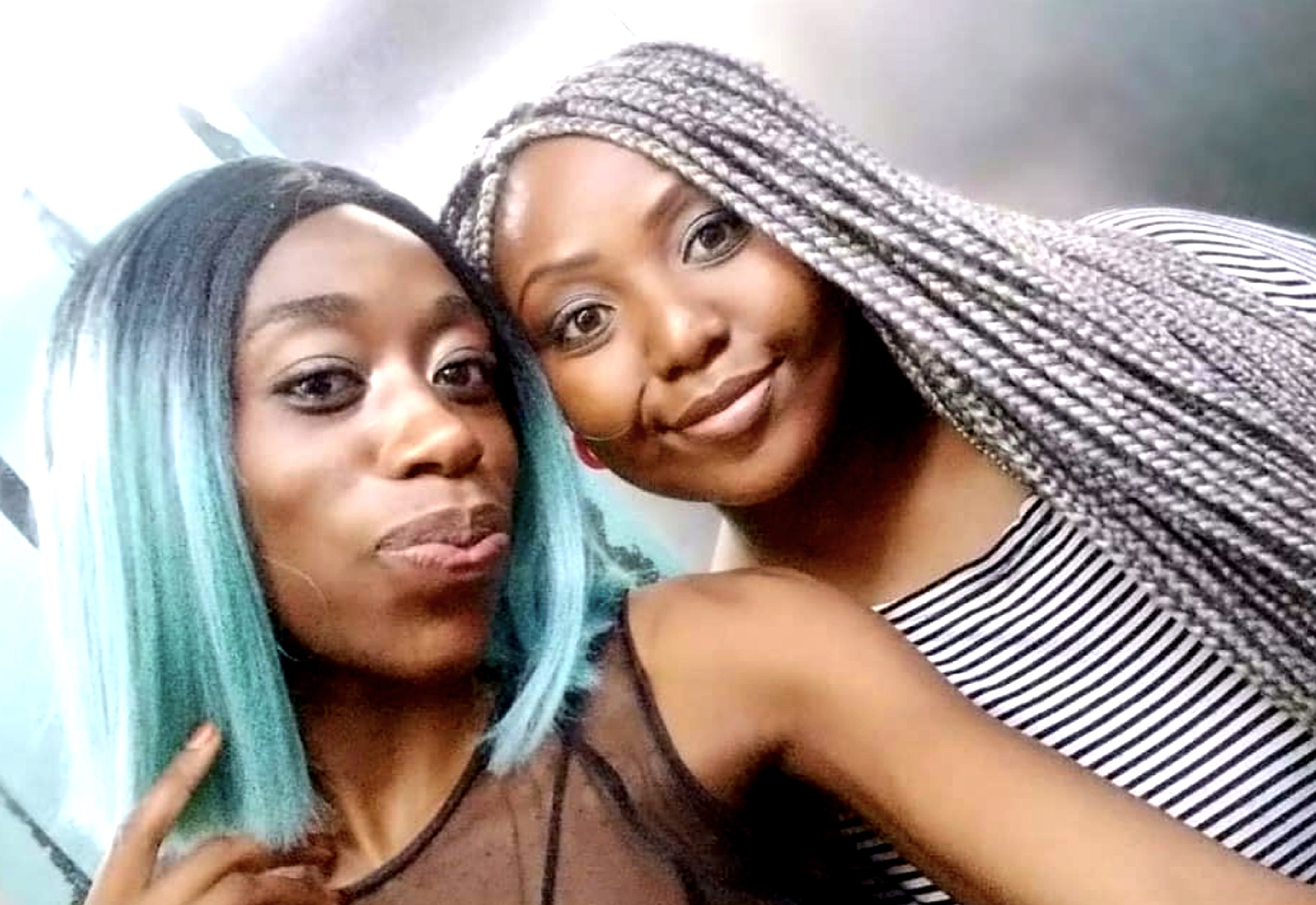
A night about town
4. “You’ll be an outsider”
We found people in Mumbai be open and welcoming, which was wonderful. We have even been lucky enough to be part of festivals and celebrations – from private religious pujas with colleagues in their homes, right up to the bigger celebrations like playing Holi with Bollywood celebrities at Vineet Jain’s Sunday Times party in Juhu, Mumbai.
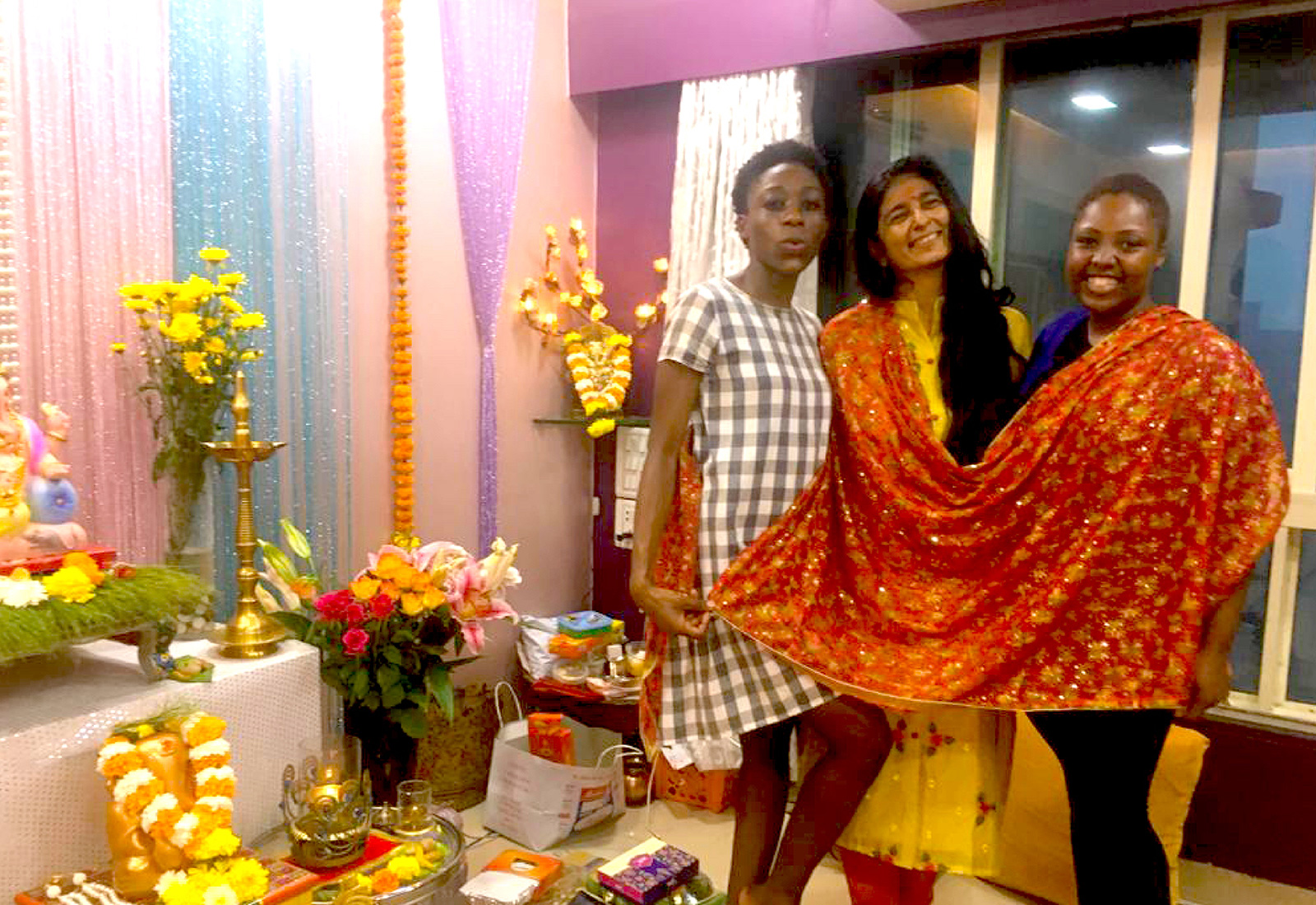
Celebrating Ganesh Chathurti at our colleague’s house
5. “You’ll be alone”
This was really unexpected! Everyone in Mumbai was curious but welcoming. The cherry on top for Sam was having a fellow South African “partner in crime” in Nomusa to share the experience with – thanks to some impressive HR talent-acquiring timings. Nomusa was free with her accumulated knowledge of this new “home” country, not to mention some impressive Hindi skills that both used to show off how naturalised they’d become, despite being seen as somewhat “exotic”. For Nomusa, six years of being trained to think scientifically through enhanced logical and analytical skills (often at the cost of artistic imagination) and three years of living in India, the chances of meeting a fellow South African who happened to reawaken her artistic flair with her creativity as a graphic designer were one in a million. Godrej gave her a blank canvas, and Sam played a vital role in introducing her to the company culture and exposing her to new tools to colour her canvas vibrantly; something she couldn’t have imagined for herself.
6. “You won’t really be doing anything unique”
We have both been contributing to our roles in a very unique way. Since Africa is one of our fastest growing businesses, and we are only getting bigger, our job roles focus on bringing the unique African perspective to the way we develop products and do business. Nomusa currently looks after wet hair products for Africa, which includes net revenue protection and generative projects, as well as cost optimization and value addition. Her work has exposed her to how innovations can solve consumer problems as well as how consumer needs drive research to address those problems. For her, it’s a huge source of motivation to be a part of the R&D team and cross-pollinate technologies to develop innovative products.
Sam collaborates across functions and supports our geographies by taking the lead on producing for the African/ethnic beauty space. The focus has been more on institution building and developing designs, and validating or reforming some ideas that the India team had considered but hadn’t locked down on. What is extremely fulfilling for her is the unique insight and experience she’s able to bring as both an end user as an African woman and as a Designer/Art Director.
So, if you’re contemplating doing something similar (or not), here are some of our tried and tested tips:
1. Limit your preconceived expectations
This is critical. Like we shared in the examples above, we heard so much before we came, but so much of what we experienced was so different. If we had let that bias our thoughts, we may not have taken up these opportunities – and look at what we would have missed out on! India as we realised, is like no place you have been before. So, be open.
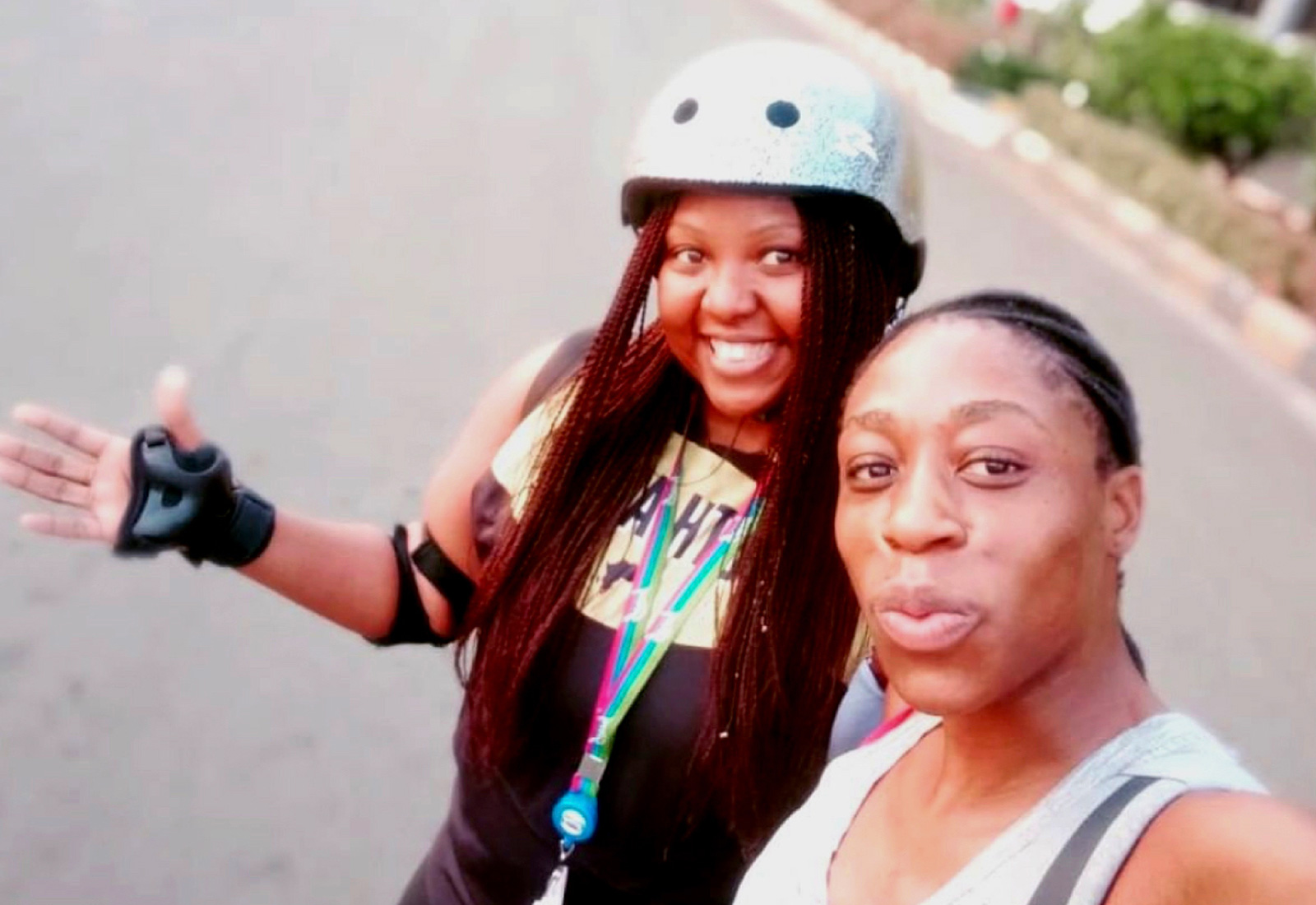
Sometimes, we skate or jog to the office
2. Ask a lot of questions
Don’t be afraid to approach someone with questions. Most people LOVE to talk about their home country 🙂 Sam was fortunate enough to have grown up in Durban, which incidentally, has the largest number of Indians living outside of India! She also was lucky enough to have worked for Godrej in South Africa, so she got to meet her “India-Indian” colleagues who were friendly and forthcoming, happy to answer any little query she might have as a foreigner – no matter how silly. For example, discovering that the definition of a suburb here compared to where she lived back home could not be more shockingly different. This really helped allay my concerns about the city, the work culture, office dress-code and general day-to-day concerns a single woman in a new city might face.
3. Try to make friends
You need to make that bit of extra effort when you’re the new person – in the team, or in our case, country. So, try to make friends. Join your local expats group for lunches and accept the odd karaoke invitation or salsa dance night…just be open to socializing and you will meet a wider circle of friends through networking. Dive into cultural events around you and you will soon learn something about yourself in learning more about others. We have got to a stage where we know more about the Mumbai social scene than our colleagues (and there are more calendar events than days in the week!) which goes a long way into making a new city/country feel more like home.
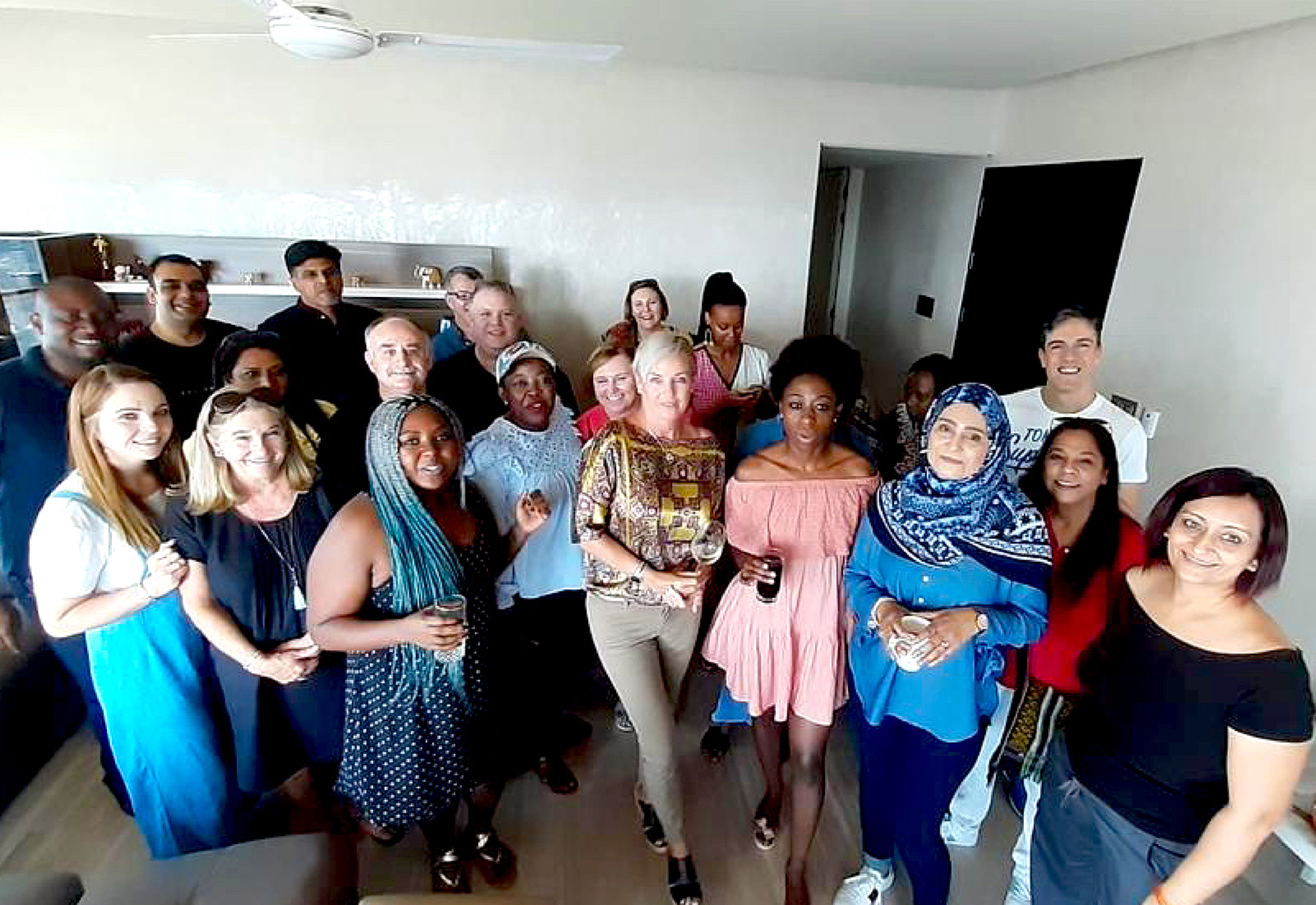
Making friends with fellow South-Africans, in India!
4. Act local
Experiment, experiment, experiment. There’s so much to try! You can’t fully understand a country from just books, movies or stories. You have to participate. Hearing about two girls on the back of a two-wheeler on the way to an ATM with a leather-dealer in Goa is not as much fun as living the experience and laughing about it afterwards.
Experiencing local and regional specialties has been a tasty way to learn about our new country. We joined the company gym to counter-act all the elaborate home-cooked meals (Thali, kingfish Goan cuisines, Indian breads, you name it!). In fact, Nomusa feels that she is becoming more “colourful” as India grows on her – enjoying winters in the Pink city and exploring historical sites like the Meenakshi temple, while Sam has taken to enjoying the countryside or the occasional mountain hike to take in the city from breathtaking vantage points.
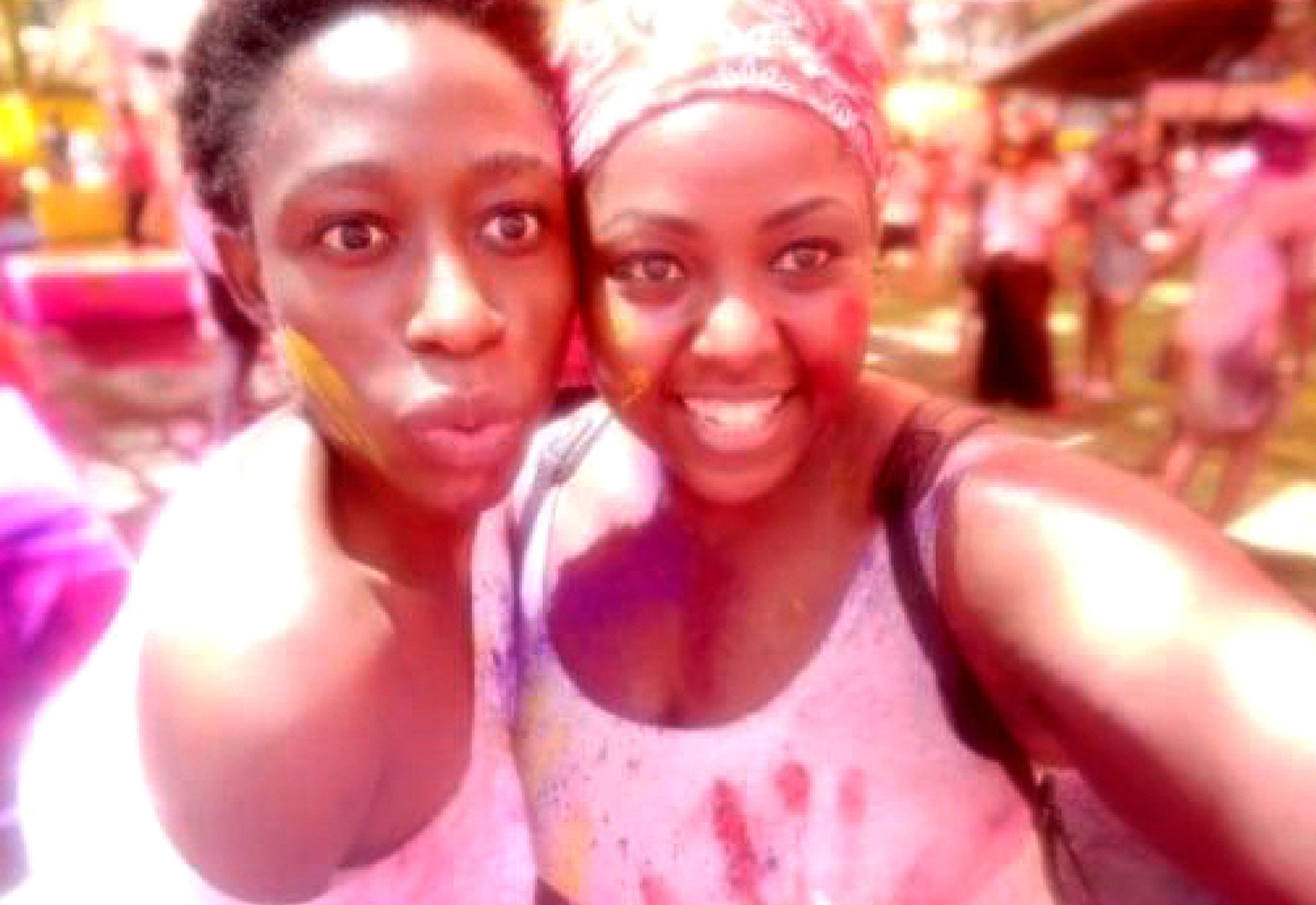
A very colourful Holi
5. Catalogue as much as you can
Take photos, journal each experience, create and record memories. To echo what Raman said: “Do not allow the journals of the Academy to die…”
Keep a journal, or even better – turn your journaling into a travel blog, focusing on narrating the experiences, giving references, contacts and tips. It’s not only about writing for an audience but also for yourself. It is important to leave your blueprint on every sentence and not be afraid that someone will judge you because of your fears, frustrations and enchantments. This is a great way to store your memories. Sam’s Instagram page has proved a valuable tool to keep her family involved in the experience as well.

Taking in the countryside with a mountain hike
6. Get your family excited too
Your family plays an important role too. There’s a good chance that they could be concerned about such a big life change. It’s for you to help them understand and support this. As Sam found, the more questions she asked and the better she understood her new life in India, the more she was able to address her family’s concerns. In the end, they were as eager for this adventure as she was, even to the point of making the trip to India to visit!
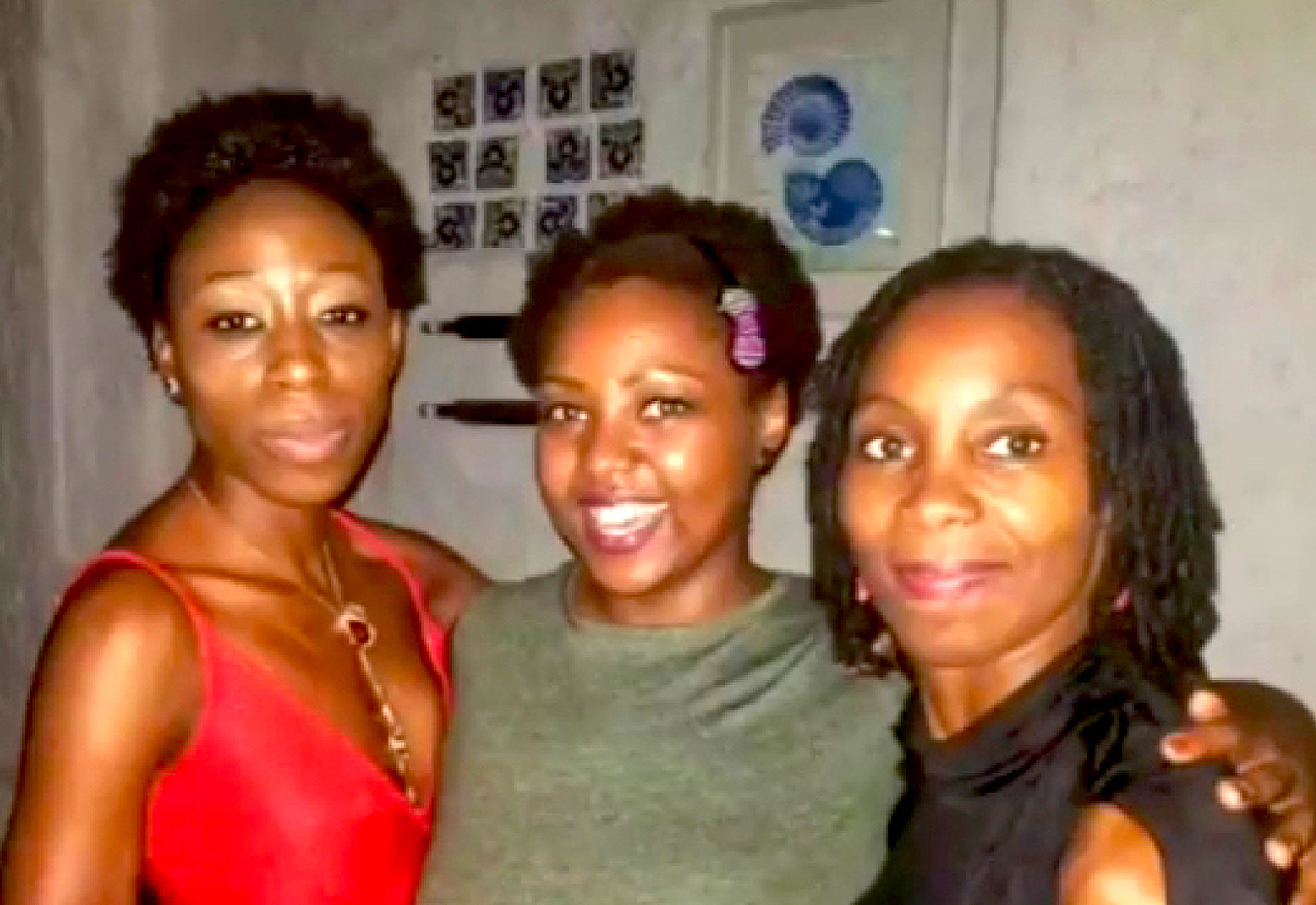
Sam’s sister’s visit to Mumbai
7. There’s learning everywhere
With each move, you have to learn adaptability – learn the dos and the don’ts, how people tick, and, of course, the language! The only thing we wish we had known before we got here was more of Marathi so that we could negotiate better at the market.
8. Take the leap
Despite all your planning and research, there’s no way you will know all of the details. Things will change and be unexpected. That’s part of the adventure. So, instead of waiting for all the answers, if you’re broadly comfortable, take the leap and have faith that it will all work out well. We both found support, friendship and opportunity where we hadn’t expected it.
The experience will open your heart and mind beyond what you were used to before. As Reannon Muth said, “When abroad, boredom, routine and ‘normal’ cease to exist. And all that’s left is the thrill and challenge of uncertainty”.
Any new start can be challenging at the outset and moving to a completely new country, and one such as India – full of history, myth and mystery, a myriad of customs, cultures and cuisines can be daunting! There is so much going on all the time, it is unimaginable! South Africa is itself a beautiful and diverse country with a portion of its recent history common with India’s own through because of Mahatma Gandhi and his descendants – one of many Indian families that graced our shores due to the strain of colonialism. Despite having a foundation of “basics” learned from our South African-Indian community, coming to live in an entirely new country, one that we knew very little about was a challenging decision to say the least. We had to lead with a spirit of adventure and today we can honestly say that we are thankful that we took the leap into a brand-new world!
Many thanks to Sam and Nomusa for sharing their perspectives and offering us a glimpse into their lives in India. One of the most important points they make – and I’m sure you will agree, if you’ve been in a similar space – is to try and not let preconceived notions bias your choices. True, there will always be tradeoffs and life, as you know it, will change, but there are some significant (and very enjoyable upsides) to experimenting with a new geography and culture.








Comments